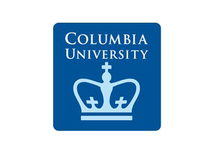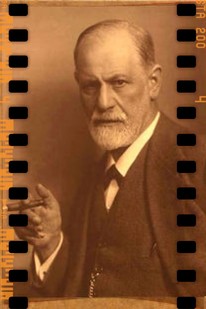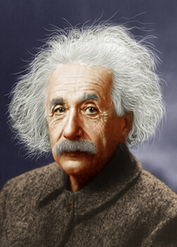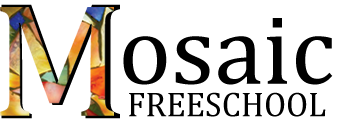|
with Angela Harris Analysis Chapters 13-18  We finished up our discussion of The Chosen by going over the events of Book Three. I think for the most part everyone enjoyed this novel; I know I certainly did. In Book Three, the two boys choose their individual paths and make peace with Reb Saunders. Danny goes to Columbia University to study psychology and Reuven tells his father he intends to become a rabbi. We took a three-page final quiz on the entire novel as a way to gauge our retention of many of the basic facts of the book. I think everyone grasped the novel quite well. Sigmund Freud  In The Chosen, Danny Saunders is drawn to the ideas of Sigmund Freud, much to the dismay of the adults in his life. Our mini-lesson this week focused on Freud, who he was, his ideas, and his life. After quickly reviewing a handout and maps of Moravia and Austria (where Freud spent much of his time) I think the students had a pretty good idea of why Freud would have seemed a rather shocking choice for a devoutly religious Hasid during this time frame. We then had some fun with a True/False quiz on dream interpretation and a writing exercise that asked the students to think of themselves in abstract, non-concrete terms and then try to explain their responses. For instance, if I were to say "mountain" or "valley," which word would you associate yourself with and why? We had some fun with this, and I really enjoyed hearing the students explanations for their choices. They revealed a deep understanding of their natures which I think quite rare for this age! Good stuff. Remaining Essays and Final Projects Students have until January 6 to submit any remaining essays and their final projects. If there are any questions on possible topics for the final, please let me know. Each student should have written a total of four exploratory essays for this session, as well as the final project. If you have any questions about what essays are still due, please consult the syllabus first, and then let me know if you have any further questions/concerns about completing your work. In addition, please read the following radio address by Albert Einstein. "The Dispersal of European Jewry” is the transcription of an address by radio for the United Jewish Appeal, broadcast March 22, 1939 in the USA, when World War II and the Holocaust were yet about to begin. Albert Einstein considered himself a Zionist (same as Mr. Malter in The Chosen). The Dispersal of European Jewry (March 1939) by Albert Einstein Albert Einstein Albert Einstein The history of the persecutions which the Jewish people have had to suffer is almost inconceivably long. Yet the war that is being waged against us in Central Europe today falls into a special category of its own. In the past we were persecuted despite the fact that we were the people of the Bible; today, however, it is just because we are the people of the Book that we are persecuted. The aim is to exterminate not only ourselves but to destroy, together with us, that spirit expressed in the Bible and in Christianity which made possible the rise of civilization in Central and Northern Europe. If this aim is achieved Europe will become a barren waste. For human community life cannot long endure on a basis of crude force, brutality, terror, and hate. Only understanding for our neighbors, justice in our dealings, and willingness to help our fellow men can give human society permanence and assure security for the individual. Neither intelligence nor inventions nor institutions can serve as substitutes for these most vital parts of education. Many Jewish communities have been uprooted in the wake of the present upheaval in Europe. Hundreds of thousands of men, women, and children have been driven from their homes and made to wander in despair over the highways of the world. The tragedy of the Jewish people today is a tragedy which reflects a challenge to the fundamental structure of modern civilization. One of the most tragic aspects of the oppression of Jews and other groups has been the creation of a refugee class. Many distinguished men in science, art, and literature have been driven from the lands which they enriched with their talents. In a period of economic decline these exiles have within them the possibilities for reviving economic and cultural effort; many of these refugees are highly skilled experts in industry and science. They have a valuable contribution to make to the progress of the world. They are in a position to repay hospitality with new economic development and the opening up of new opportunities of employment for native populations. I am told that in England the admission of refugees was directly responsible for giving jobs to 15,000 unemployed. As one of the former citizens of Germany who have been fortunate enough to leave that country, I know I can speak for my fellow refugees, both here and in other countries, when I give thanks to the democracies of the world for the splendid manner in which they have received us. We, all of us, owe a debt of gratitude to our new countries, and each and every one of us is doing the utmost to show our gratitude by the quality of our contributions to the economic, social, and cultural work of the countries in which we reside. It is, however, a source of gravest concern that the ranks of the refugees are being constantly increased. The developments of the past week have added several hundred thousand potential refugees from Czechoslovakia. Again we are confronted with a major tragedy for a Jewish community which had a noble tradition of democracy and communal service. The power of resistance which has enabled the Jewish people to survive for thousands of years is a direct outgrowth of Jewish adherence to the Biblical doctrines on the relationship among men. In these years of affliction our readiness to help one another is being put to an especially severe test. Each of us must personally face his test, that we may stand it as well as our fathers did before us. We have no other means of self-defense than our solidarity and our knowledge that the cause for which we are suffering is a momentous and sacred cause. See you on-line Wednesday, Jan. 7, 2015, for
|
Categories
All
Archives
May 2016
|

 RSS Feed
RSS Feed